|
by James DeChene
The JFC completed work on a $4.3 billion budget this week, leaving roughly $61 million in additional spending between now and June 30th. Restoration of Grant in Aid funding from last year’s cuts are expected (about $8 million), but there will still be a hefty amount left to distribute, which may be sent to the Capital Improvement Committee for an increase in one-time infrastructure spending this year. Next week, the General Assembly is back in session, and starting the countdown of 13 legislative days left until June 30. They will have their hands full with pending gun legislation, finalizing spending, and working on the remaining bills relevant to the business community including making changes to the WARN Act, Sexual Harassment Training, Minimum Wage, and Biometric Data Privacy. The Chamber hopes the General Assembly will introduce and pass the first leg of a constitutional amendment related to budget smoothing. We will keep you informed on all these issues, and others as they come up.
0 Comments
by James DeChene
Last week Governor Carney and Treasurer Simpler released a bipartisan plan to help address Delaware’s economic boom and bust cycles. Last year’s $400 million budget shortfall highlighted the volatility in our state’s revenues, and this year’s $400 million increase in revenues, while a boon, is an $800 million swing in just one year. For a state with a $4 billion budget, that kind of shift is incredibly significant. Enter in the budget smoothing idea. Making changes to smooth out these peaks and valleys in our revenue stream has been a Chamber priority since 2015 when DEFAC released its revenue report. This report highlighted how volatile Delaware’s revenues are and provided a blueprint on how to prepare Delaware for the future, putting it on a path toward sustainability. The state has undertaken some of that blueprint by making changes to Delaware’s escheat program and by changing how companies calculate their corporate income tax to a single sales factor. The next part of the process needs to happen now! A constitutional amendment, the first leg of which needs to be passed this year, would help create a true rainy day fund to be used in times of need, and added to in good times. In fact, the Joint Finance Committee itself voted this week to defer $46 million of this year’s revenue to future spending—exactly the way the budget smoothing process would be utilized. The benefits to budget smoothing are good for businesses, who won’t be subject to knee jerk reactions to raise money fast to balance a budget through tax and fee increases. It also helps Delaware’s nonprofits who receive Grant-in-Aid funding better plan year to year instead of facing last minute cuts in the down years and hoping for their replacement in the up years. With revenues projected to be close to $500 million this year above last year’s budget, the time is ripe to make improvements to Delaware’s future. There’s no negative impact to funding, or to this year’s budget, and the case is strong to act now to plan for an uncertain future. by James DeChene
In case you missed it, the News Journal, WDDE, and DE State News all had articles on a proposal by Governor Carney and Treasurer Simpler to create a budget smoothing process. Efforts would help avoid budget boom and bust cycles like last year where nonprofits and other agencies saw funding cuts. It helps the business community by providing certainty and avoiding knee jerk funding needs resulting in higher taxes and fees. Here is a roundup of recent coverage on this issue: Mark Vergnano speaks for Chemours, advocating for UD's STAR Campus. STAR has great potential regarding economic development and is an asset that should be supported. by James DeChene
The General Assembly, while out for a three week break, had the Bond Bill Committee hearings start this week. Of note was State Chamber Tax Committee Chair Jim Selsor providing comments during the Division of Revenue presentation, urging the committee to invest in a technology upgrade at the department. The current system for collecting and refunding tax returns is creeping up, much like me, on 40 years, but unlike me, can undergo a much needed refresh to become much more efficient and cost effective to manage. This week, the Taskforce charged with evaluating whether consolidating school districts across Delaware would result in major savings, released its report. Contained within were the findings that while consolidation would not result in savings, there are other ways school districts can work together to find savings. Another report was released on budget "smoothing," and its importance in providing stability for budget writers in the coming years. A multi-part process requiring the passage of a Delaware Constitutional amendment, along with legislation to create a usable rainy day fund and a bill to make adjustments to PIT rates, all have to pass in order for this effort to work. Chamber members Mike Houghton and Scott Malfitano were participants in this bipartisan effort and the plan has the support of both Governor Carney and Treasurer Simpler. More to come on these efforts as they develop into action. Remarks by Paul Herdman, President & CEO, Rodel Foundation of Delaware
Good evening everyone. My name is Paul Herdman and I’m the president and CEO of the Rodel Foundation of Delaware. I also serve on the board of directors for The Partnership. I’m up here tonight to present the John H. Taylor, Jr. Education Leadership Award—named after someone who I knew and respected ever since I came to Delaware—to another longtime friend and mentor, John Hollis. John Taylor’s wife, Maria, and his son, John, are here with us today and helped us make this choice in partnership with the leadership of the Chamber and the Partnership, Inc board. In making this decision, we thought hard about the core attributes that John Taylor brought to his work. Two that stand out to me are, one, a deep and unwavering passion for kids, particularly those most in need, and two, integrity and universal respect from those on the front lines to the leaders of business and government. As our group began reviewing the amazing candidates for this award, John Hollis fit these attributes to a tee. For those of you in the audience who aren’t familiar with John Hollis’ body of work... In 1974, John was approached by some leaders at the Seaford Dupont nylon plant, which was the world’s first and largest (at the time) nylon plant. The bigwigs at Dupont wanted to tap into a national movement called the National Action Council for Minorities in Engineering group, and the folks at the Seaford plant wanted to participate. John at the time was coaching and teaching science for the sons and daughters of the Dupont engineers, who all thought they needed an educator to advise and motivate these students. So from relatively humble beginnings, MERIT was born, essentially as a science club aimed at local African American, Native American, and Latino children. MERIT stood for Minority Educational Regional Incentive Training. Their charge was clear: to help address the wide disparity between a roughly 25-percent local minority population, and the less than 1 percent of whom were matriculating into higher education in science and technical fields. Now, John knew from his years as a coach, counselor, and teacher that if we wanted to inspire these children to higher education and beyond, he needed to develop the whole child, not just host them in a science club. So John got to work utilizing his knowledge in motivational science to morph this science club into a total youth development program, helping countless young people with not only academic chops, but with motivation, goal-setting, time management, and more. John understood that all students have the potential for greatness. And that sometimes, what they needed most was a picture of what that greatness could look like. Hence the importance of setting goals, and understanding the steps needed to reach those goals. He did all this with an unflinching approach to STEM education (back before STEM was the buzzword it is now). MERIT kids were engaging in rigorous instruction met with fun activities that made science and engineering come alive. Stuff like engineering competitions with fighting robots or wind turbine design contests—often in partnerships with local employers. John once told us that he thinks about MERIT as a place where the rubber meets the road. In other words, he doesn’t operate in theoreticals, but in action. He preaches family involvement, community activation, mentorship. Not that he needs validation, but MERIT’s track record does just that. To date, 370 MERIT alumni have gone on to achieve a college degree, accounting for approximately 97% of its participants. Many return to volunteer, creating a strong alumni base, which has helped shape the evolution of the program. 14 MERIT students have gone onto Ivy League degrees. Around 30 have doctorates. In addition to all his work with MERIT, John’s been deeply involved with DelTech, the Delaware Community Foundation, the Western Sussex Boys and Girls Club, and Nemours. John has overseen MERIT for 42 years. And he’s done so through a lens of servant leadership and I know his faith has been foundational to how he approaches the work. Thanks to his guidance, hundreds of young people who needed a leg up have been inspired by his passion for engineering and math, and more. He has given his heart to the community and never asked for acknowledgement. I have every confidence that the namesake of this award, John H. Taylor, would have been honored to give him some of that recognition. Ladies and gentlemen, it’s my honor to present the John H. Taylor, Jr. Education Leadership Award—to John Hollis! "It's typically a specific bill or issue that brings small business owners to Legislative Hall and it's intimidating. It's great to have the Chamber on your side for this," said Kim Gomes of The Byrd Group.
As a small business owner, we recognize that you may not have the ability to go to Dover for every piece of legislation. But the State Chamber does and we're here for you. Capitalize on the membership benefit of having a full time lobbyist for your business interests through DSCC. Our annual Small Business Day in Dover on May 10, kicked off with a panel discussion featuring Kim, Rick Deadwyler of DuPont, Lincoln Willis of The Willis Group and Kim Willson of Ruggerio Willson & Associates. Our lobbyists shared with attendees advice and best practices for navigating Legislative Hall and working alongside their legislators. Some key takeaways:
Following the panel, we participated in the House Small Business Caucus meeting, chaired by Representatives Quinn Johnson, Daniel Short and Michael Ramone. Guests heard from Dr. Kara Odom Walker from the Department of Health and Social Services who provided an update on the state of health care in Delaware. Our 80 attendees were then able to tour Legislative Hall and meet with their legislators in person. Thanks to sponsors MilliCare by EBC, Environmental Alliance, Inc., Offit Kurman Attorneys at Law, Santora CPA Group, Vandemark & Lynch, Inc., and the Delaware Division of Small Business. The General Assembly was in session this week, with a number of bills related to business either in committee or being worked on the House or Senate floor.
Of note, HB409, while released from House Labor Committee, will be amended based on State Chamber input. The bill would modify how, and when, companies notify Delaware Department of Labor of significant layoffs. HB406, which would allow companies with five employees or more to offer ERISA style health plans, cleared the House Economic Development Committee, and will now be heard on the House floor. A bill to lower the age for servers in restaurants to serve alcohol from 19 to 18 was also heard in the House this week. Additionally, the State Chamber’s Small Business Day in Dover was yesterday, May 10. Over 70 business representatives came to Legislative Hall to hear from lobbyists on the issues facing Dover, met with their elected officials, and had the opportunity to watch the General Assembly conduct their business during legislative session. The General Assembly is in recess for three weeks, and returns on June 5. They will then work straight through to the end of June. As part of our Spring 2018 survey, we asked participants to list their top three policy concerns. We posed a similar question in our Fall survey with comparable results. Last survey, 50% of our survey respondents said that the Cost of Health Care was their #2 policy priority. We heard you loud and clear and are addressing this issue by working with partner organizations and stakeholders around the state.
With that question out of the mix in our current survey, members are telling us that Economic Development remains the #1 policy concern. That is followed education/work force development and permitting delays/regulatory issues. by Mark DiMaio
Over 230 State Chamber members took our 10-question survey on Delaware’s economic health and key policy issues. The survey is an important tool in taking the pulse of our membership’s view of the national and local economy as well as level setting their policy priorities. |
Archives
July 2024
Categories
All
|
|
Copyright Delaware State Chamber of Commerce, Inc.
All Rights Reserved. PO Box 671 | Wilmington DE 19899 (302) 655-7221 | [email protected] | sitemap |
|

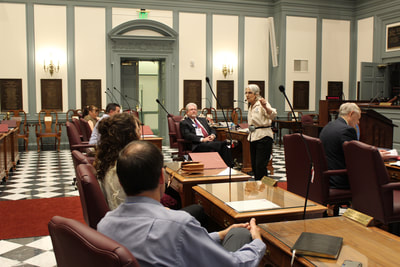
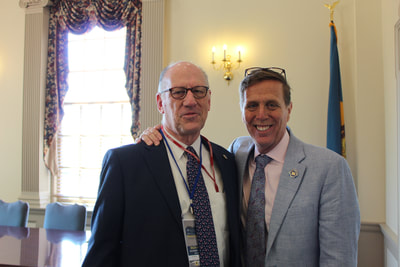
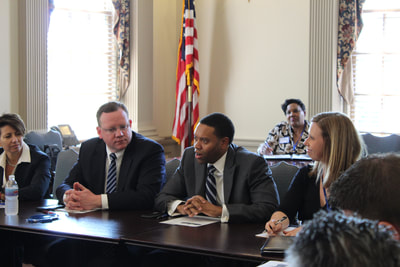
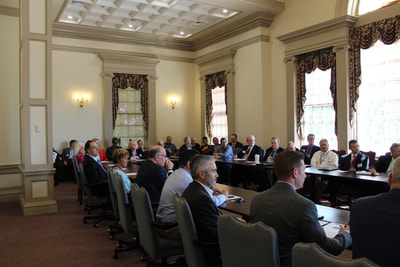
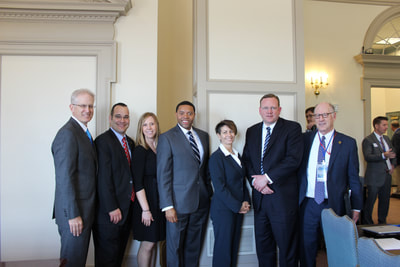
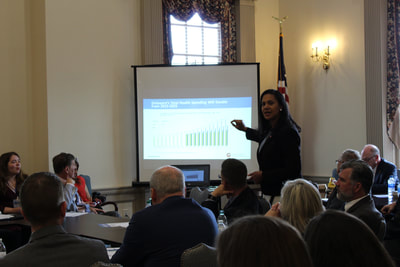


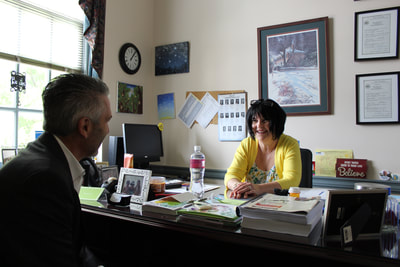
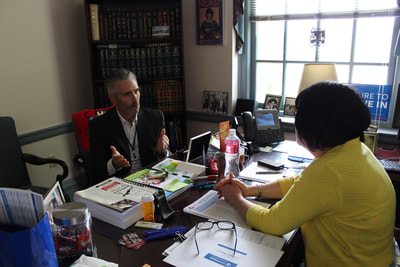
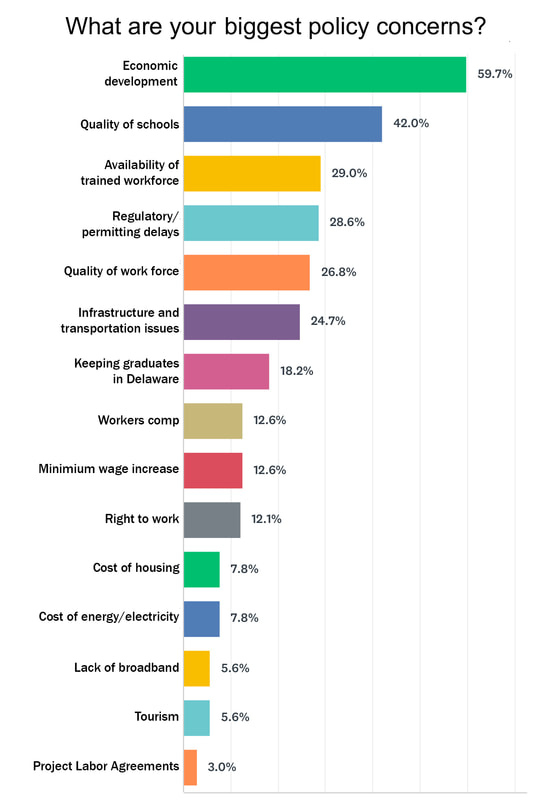
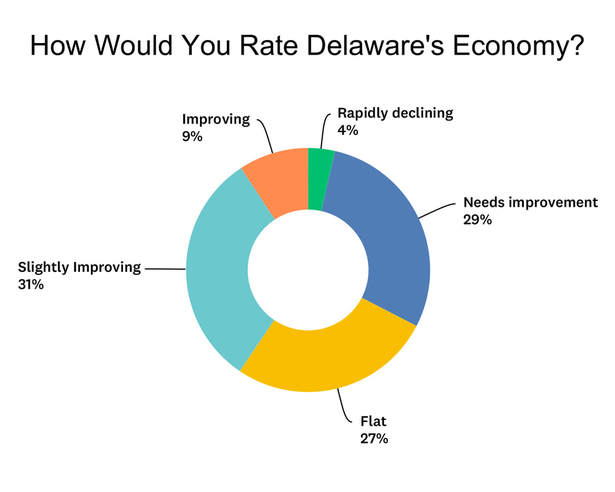
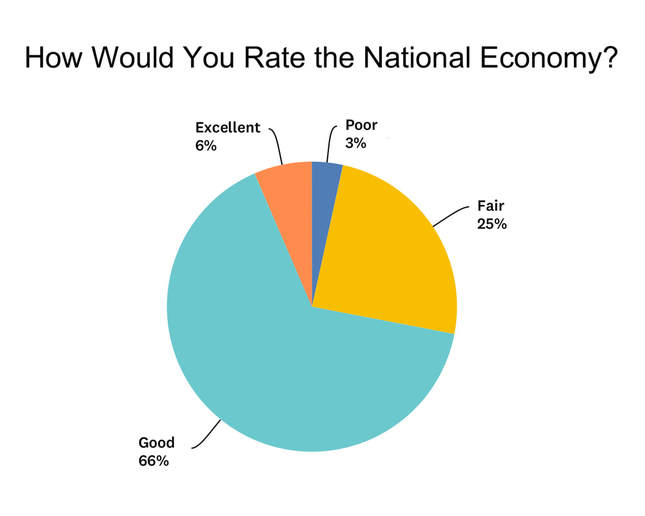
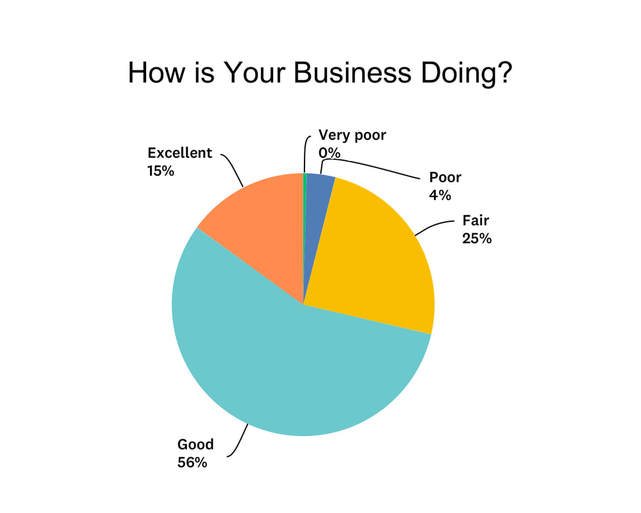
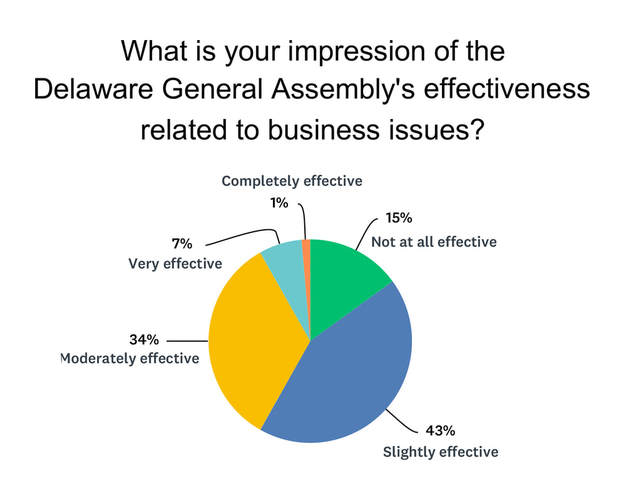
 RSS Feed
RSS Feed